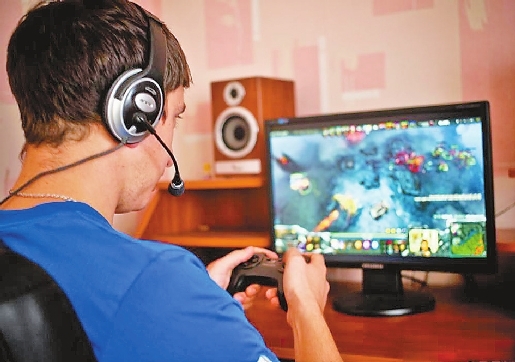
BRAIN scans of men addicted to online gaming show changes in the brain regions associated with impulsivity, new research presented Wednesday at the annual meeting of the Radiological Society of North America finds. But no brain alterations are seen in addicted women, said the authors of the small study who compared the scans of addicted men and women to healthy volunteers. Internet gaming disorder, which was added to the 11th edition of the World Health Organization’s International Classification of Diseases for the first time in June, is diagnosed when an online gamer plays compulsively to the exclusion of other interests, including school and family life. Generally, males may be more likely to become addicted to gaming, said Sun Yawen, the study’s senior author and a diagnostic radiologist at Renji Hospital affiliated with the Shanghai Jiao Tong University School of Medicine in Shanghai. “Males with IGD (Internet Gaming Disorder) were found to be more affected by genetic influences than females with IGD,” Sun said. It may be the “high levels of testosterone” in male teens that contribute to some of the symptoms related to gaming addiction, she added, “such as taking greater risks, being less responsive to punishment, and exhibiting more aggressive behaviors.” Sun and her colleagues recruited 32 men and 23 women addicted to gaming and an additional 30 male and 22 female age-matched healthy volunteers. All 105 study participants underwent resting-state functional MRI scans. This type of brain scan “measures brain activity by detecting associated changes in blood flow,” explained Sun, who added that researchers use fMRI to explore the mechanism of many different types of mental disorders and diseases. Mapping the results of the scans, Sun and her colleagues saw key differences between the men and women gaming. Men addicted to gaming, when compared to healthy controls, showed brain function alterations in the superior frontal gyrus, an area of the brain’s prefrontal lobe that is important to impulse control. However, the brain scans of the addicted women showed no such alterations or any differences when compared to age-matched non-addicted women. The changes in the brain recorded in her new study “may be one of the risk factors, not the result” of an addiction to gaming, speculated Sun. “Future research will explore this hypothesis.” Still, she noted that previous studies have shown “the cortex matures later in males and does not catch up to females in the prefrontal cortex regions by adulthood.” Generally, immature males have shown lower levels of impulse control in comparison with same-aged females, and their impulse control increased more gradually, Sun said. (SD-Agencies) | 
